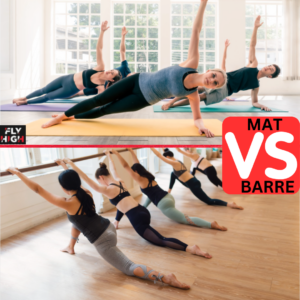Navigating the best time for children to embark on various activities can be a puzzle for parents eager to enrich their children’s lives with skills, discipline, and fun. Generally speaking, the best age for a child to start physical activities varies depending on the specific activity and the child’s individual development. However, many physical activities can be introduced to children as young as toddler age, around 2 to 3 years old, in a safe and age-appropriate manner often involving the participation of their parents, which can also help with attachment and bonding. Activities such as running, jumping, climbing, and exploring outdoor environments can begin at this age to promote gross motor skills and physical coordination.
As children grow, they can gradually be introduced to more structured physical activities such as swimming, gymnastics, dance, and martial arts, typically starting around 4 to 6 years old. These activities not only promote physical fitness but also help develop skills such as balance, flexibility, strength, and coordination.
It’s essential to consider the child’s interests, abilities, and readiness when determining the best age to start physical activities. Early exposure to a variety of activities in a supportive and encouraging environment can foster a lifelong love of physical fitness and healthy living. Additionally, parents should always prioritize safety and choose activities that are developmentally appropriate for their child’s age and stage of physical development.
At Fly High Fitness Center, as a family-oriented center, we have built our classes in a way that suits each child’s development, often cross-referencing kids from one class to another and providing various levels and age-best classes from parent and me classes to toddlers, teens, etc. Let’s explore each of the disciplines offered:
Gymnastics & Rhythmic Gymnastics
Starting Age: From 3 years for basic gymnastics; 4 years for rhythmic gymnastics.
Considerations: Early training enhances coordination, balance, and flexibility, serving as an excellent foundation for all physical activities.
CrossFit for Kids
Starting Age: Suitable for children from 7+ years old.
Considerations:: These programs focus on fun, building a broad athletic foundation, and promoting a positive attitude towards fitness and health.
Dance: Ballet, Contemporary, Hip Hop, Tap, and Commercial
Ballet Starting Age: Recommended from 4 to 5 years.
Other Dance Forms Starting Age: Generally, children can begin at 5 years and older.
Considerations: Dance fosters self-expression, creativity, and discipline. Ballet serves as a strong foundational skill for other dance forms, emphasizing posture, flexibility, and technique.
Musical Theatre
Starting Age: 6 years and up.
Considerations: Encourages a blend of singing, dancing, and acting skills, enhancing confidence, expressiveness, and teamwork.
Martial Arts: BJJ, Kickboxing (Muay Thai), Karate
Starting Age: From 5 to 6 years old.
Considerations: Martial arts teach discipline, respect, and self-defense, contributing to physical fitness and mental toughness.
Tumbling & Trampoline
Starting Age: As early as 4 years old.
Considerations: Great for developing coordination, strength, and spatial awareness in a fun and engaging environment
Personal Training
Starting Age: Recommended from 7 years old.
Considerations: Offers tailored fitness routines that cater to the child’s individual needs, goals, and skill levels, ensuring safe and effective training.
Swimming
Starting Age: Structured swimming lessons can start from 3 to 4 years old, with water familiarization possible from 6 months.
Considerations: Swimming is not only a vital life skill but also an excellent form of exercise, promoting cardiovascular health and coordination.
Football
Starting Age: 4 to 5 years old.
Considerations: Introduces teamwork, coordination, and discipline. The focus is on enjoying the game and learning basic skills.
Cheerleading
Starting Age: From 6 years old.
Considerations: Combines elements of gymnastics, dance, and teamwork, fostering a sense of community and team spirit among participants.
Engagement in these activities can provide a wealth of benefits, including improved physical health, enhanced social skills, and a boost in self-confidence. However, the overarching goal should always be to ensure a positive, fun, and enriching experience for your child, paving the way for a lifelong appreciation for health, fitness, and the arts.






